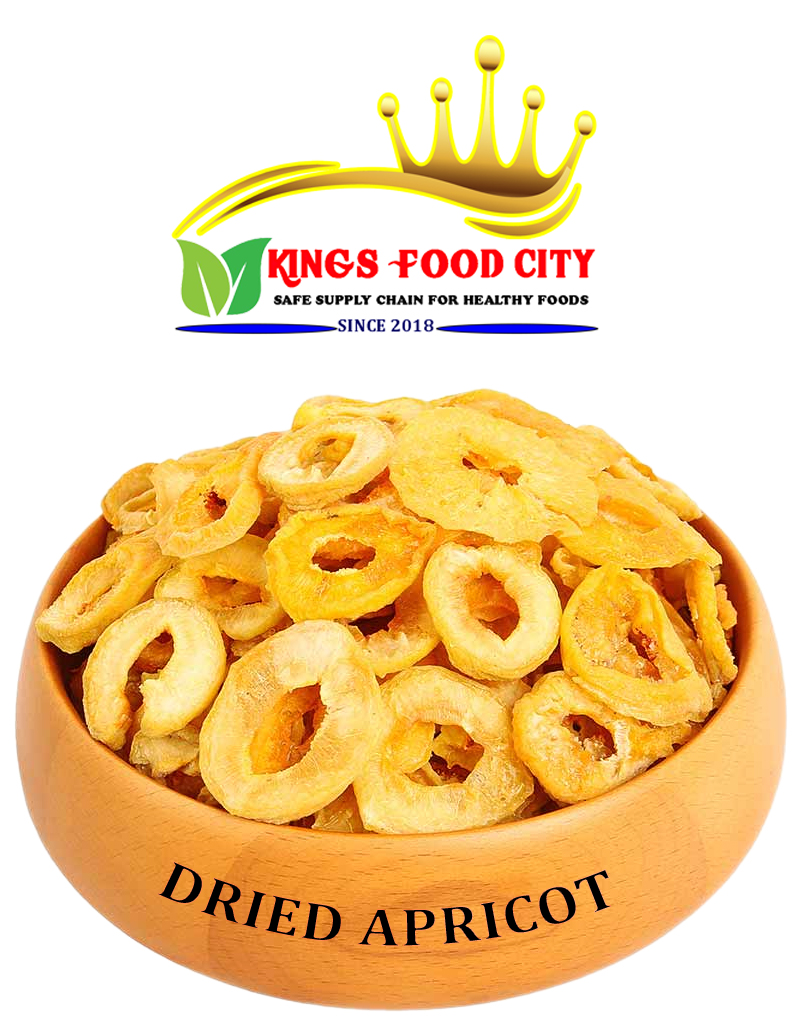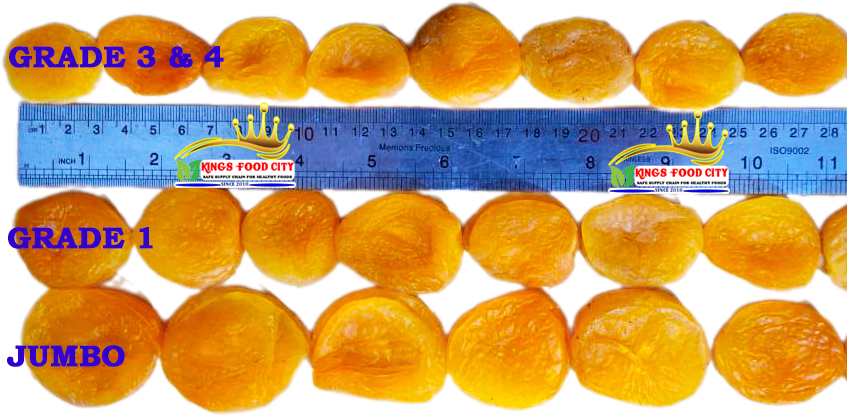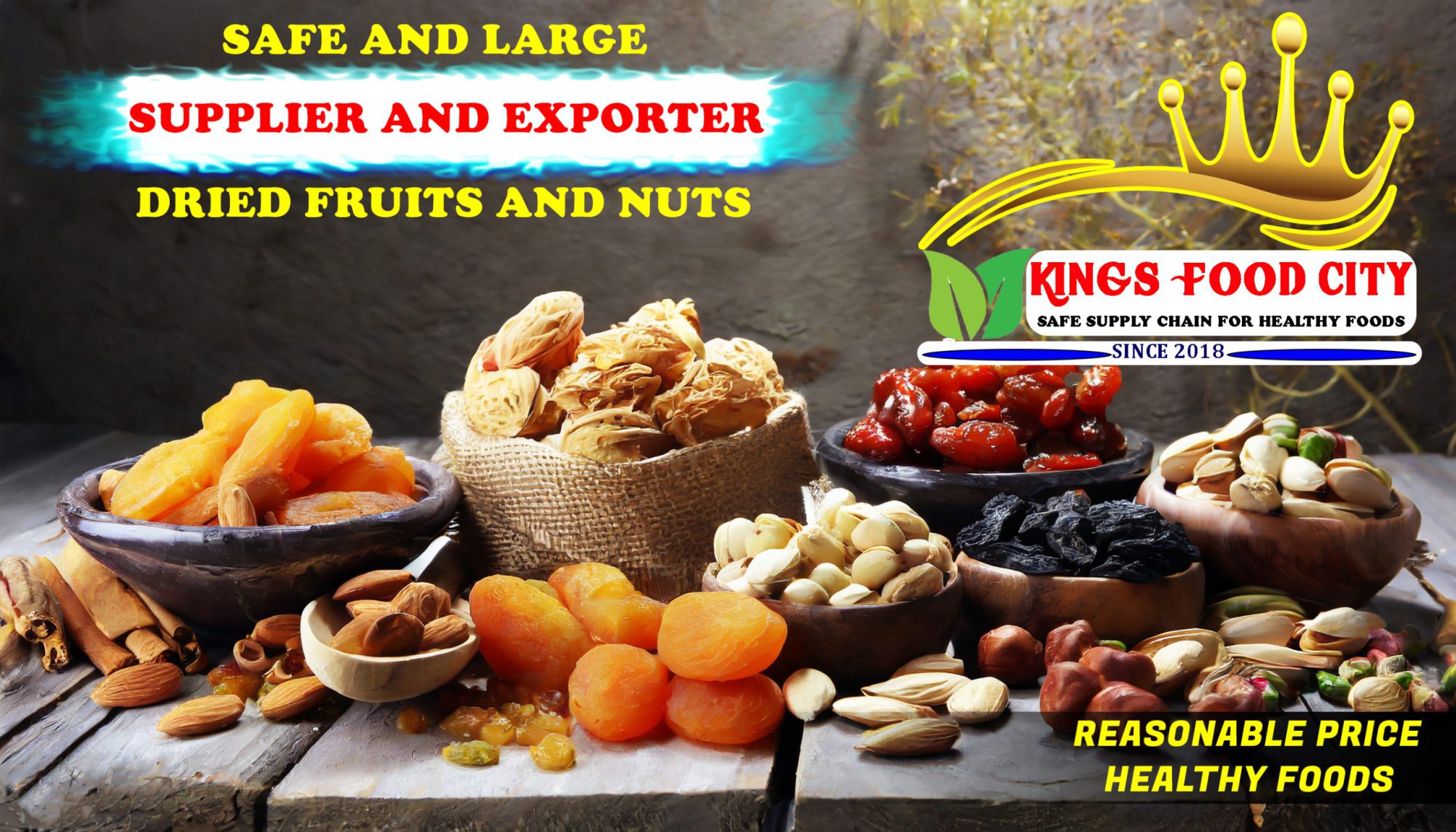Dried Apricots as Nutritious Snack
Apricots are delightful stone fruits renowned for their sweet, juicy flesh and delightful aroma. These fruits are typically enjoyed during the summer months and are widely appreciated for their versatility in culinary applications. Apricots, scientifically classified as Prunus armeniaca, are small, golden-orange fruits with a velvety skin. They belong to the family Rosaceae, which also includes cherries, peaches, and almonds. Apricots have been grown in Central Asia for a very long time, and dried apricots played a significant role in trade along the Silk Road. Their ability to be transported over long distances was due to their extended durability. Prior to the 20th century, they were widespread in the Ottoman, Persian, and Russian Empires. The fruit has a distinct, sweet flavor with a hint of tartness. Apricots are a great source of essential nutrients, including dietary fiber, vitamin A, vitamin C, potassium, and antioxidants. They are low in calories and high in fiber, making them a great addition to a balanced diet.
Dried apricots belong to the category of classic dehydrated fruits and are known to offer excellent nutritional value among dried fruits. When preserved with sulfur dioxide, dried apricots display a vibrant orange color. In contrast, natural dried apricots, without sulfur dioxide treatment, exhibit a darker hue. Dried fruits like apricots can maintain their high quality when stored in a dry, cool environment for up to six months. Once opened, it's advisable to tightly seal them and store in the refrigerator to maintain their quality for over six months.
Dried apricots make a delicious and nutritious snack on their own. They have a sweet and slightly tangy flavor that can satisfy your cravings. You can create your own custom trail mix by combining dried apricots with nuts, seeds, and other dried fruits. It's a convenient and energizing snack for any time of the day. Chop dried apricots into small pieces and add them to your favorite baked goods such as cookies, muffins, or bread. They add a delightful chewy texture and a burst of flavor. Sprinkle some dried apricot pieces into your morning bowl of yogurt or cereal. It adds a natural sweetness and a pop of color to your breakfast. Slice dried apricots and toss them into green salads or grain-based salads. They add a pleasant chewiness and a touch of sweetness to your salad. Serve dried apricots alongside a cheese platter. The combination of the sweet apricots with the savory cheese creates a delightful contrast of flavors. Rehydrate dried apricots by soaking them in water or fruit juice, then puree them to make a homemade apricot jam. Enjoy it on toast, pancakes, or as a topping for desserts.
Remember to consume dried apricots in moderation as they are high in natural sugars. Here is some health benefits of dried apricots:
1- The levels of vitamins, minerals, and dietary fiber in apricots undergo a notable increase in concentration during the drying process.
2- Dried apricots possess Vitamin E and Vitamin A, which offer various remarkable health advantages. Apricots contain Beta-Carotene, which the body converts into the active form. Emerging evidence indicates that Vitamins A and E, along with Beta-Carotene, might have a significant impact in preventing or reducing age-related eye conditions.
3- Dried apricots are enriched with Boron, a natural mineral that offers incredible health advantages. Scientific research has indicated that Boron can fulfill various crucial functions in promoting optimal bone health. Evidence suggests that Boron may contribute to overall bone health, facilitate bone healing, and support bone metabolism.
4- Apricots are abundant in antioxidants, such as beta carotene and other vitamins known for their antioxidant properties. Additionally, apricots contain flavonoids, which are a category of antioxidants that are potentially associated with beneficial effects on conditions like heart diseases and diabetes.
5- Similar to numerous other fruits, apricots possess vitamin C, potassium, and fiber, which contribute to maintaining a healthy cardiovascular system and preventing issues like heart attacks and strokes. Vitamin C acts as a protective shield for the heart against free radicals, while potassium aids in lowering blood pressure. The fiber found in dried apricots helps reduce the accumulation of excessive cholesterol on blood vessel walls. Collectively, these components promote heart health and enhance its overall functioning.
6- The natural moisturizing properties of vitamins C and A found in apricots make them suitable for application on the hands and face. Apricot kernel oil, rich in fatty acids and vitamin A, is also highly effective in hydrating the skin. As a result, it can be used as a moisturizer to alleviate dry skin.
7- As previously mentioned, dried apricots are packed with various nutrients that are particularly beneficial for human health, particularly in pregnant women. Consuming dried apricots can support the development of the fetal nervous system and reduce the risk of premature birth. Additionally, dried apricots contain iron, which aids in enhancing blood health and preventing anemia in expecting mothers.
Dried apricots belong to the category of classic dehydrated fruits and are known to offer excellent nutritional value among dried fruits. When preserved with sulfur dioxide, dried apricots display a vibrant orange color. In contrast, natural dried apricots, without sulfur dioxide treatment, exhibit a darker hue. Dried fruits like apricots can maintain their high quality when stored in a dry, cool environment for up to six months. Once opened, it's advisable to tightly seal them and store in the refrigerator to maintain their quality for over six months.
Dried apricots make a delicious and nutritious snack on their own. They have a sweet and slightly tangy flavor that can satisfy your cravings. You can create your own custom trail mix by combining dried apricots with nuts, seeds, and other dried fruits. It's a convenient and energizing snack for any time of the day. Chop dried apricots into small pieces and add them to your favorite baked goods such as cookies, muffins, or bread. They add a delightful chewy texture and a burst of flavor. Sprinkle some dried apricot pieces into your morning bowl of yogurt or cereal. It adds a natural sweetness and a pop of color to your breakfast. Slice dried apricots and toss them into green salads or grain-based salads. They add a pleasant chewiness and a touch of sweetness to your salad. Serve dried apricots alongside a cheese platter. The combination of the sweet apricots with the savory cheese creates a delightful contrast of flavors. Rehydrate dried apricots by soaking them in water or fruit juice, then puree them to make a homemade apricot jam. Enjoy it on toast, pancakes, or as a topping for desserts.
Remember to consume dried apricots in moderation as they are high in natural sugars. Here is some health benefits of dried apricots:
1- The levels of vitamins, minerals, and dietary fiber in apricots undergo a notable increase in concentration during the drying process.
2- Dried apricots possess Vitamin E and Vitamin A, which offer various remarkable health advantages. Apricots contain Beta-Carotene, which the body converts into the active form. Emerging evidence indicates that Vitamins A and E, along with Beta-Carotene, might have a significant impact in preventing or reducing age-related eye conditions.
3- Dried apricots are enriched with Boron, a natural mineral that offers incredible health advantages. Scientific research has indicated that Boron can fulfill various crucial functions in promoting optimal bone health. Evidence suggests that Boron may contribute to overall bone health, facilitate bone healing, and support bone metabolism.
4- Apricots are abundant in antioxidants, such as beta carotene and other vitamins known for their antioxidant properties. Additionally, apricots contain flavonoids, which are a category of antioxidants that are potentially associated with beneficial effects on conditions like heart diseases and diabetes.
5- Similar to numerous other fruits, apricots possess vitamin C, potassium, and fiber, which contribute to maintaining a healthy cardiovascular system and preventing issues like heart attacks and strokes. Vitamin C acts as a protective shield for the heart against free radicals, while potassium aids in lowering blood pressure. The fiber found in dried apricots helps reduce the accumulation of excessive cholesterol on blood vessel walls. Collectively, these components promote heart health and enhance its overall functioning.
6- The natural moisturizing properties of vitamins C and A found in apricots make them suitable for application on the hands and face. Apricot kernel oil, rich in fatty acids and vitamin A, is also highly effective in hydrating the skin. As a result, it can be used as a moisturizer to alleviate dry skin.
7- As previously mentioned, dried apricots are packed with various nutrients that are particularly beneficial for human health, particularly in pregnant women. Consuming dried apricots can support the development of the fetal nervous system and reduce the risk of premature birth. Additionally, dried apricots contain iron, which aids in enhancing blood health and preventing anemia in expecting mothers.

Size of dried apricots are following:
Jumbo: Gig dried apricots are called jumbo. In jumbo mode, there are a maximum of 80 dried apricots in one kilogram.
Grade 1: There are a maximum of 100 numbers in per kilogram.
Grade 2: There are a maximum of 120 numbers in per kilogram. This type of dried apricots is also called coin dried apricots.
Grade 3: which has a maximum of 140 numbers in each kilogram.
Jumbo: Gig dried apricots are called jumbo. In jumbo mode, there are a maximum of 80 dried apricots in one kilogram.
Grade 1: There are a maximum of 100 numbers in per kilogram.
Grade 2: There are a maximum of 120 numbers in per kilogram. This type of dried apricots is also called coin dried apricots.
Grade 3: which has a maximum of 140 numbers in each kilogram.

Exported dried apricots have a maximum of 25% moisture, which is different depending on the standards of each country. But the standard accepted by most countries is 18%. Dried apricots
exported by Kings Food City to different countries are processed according to the current standards of the world and according to ISO 22000. The humidity is up to 20% and the amount of sulfur is up to 2000 ppm, which can be used by all people.

